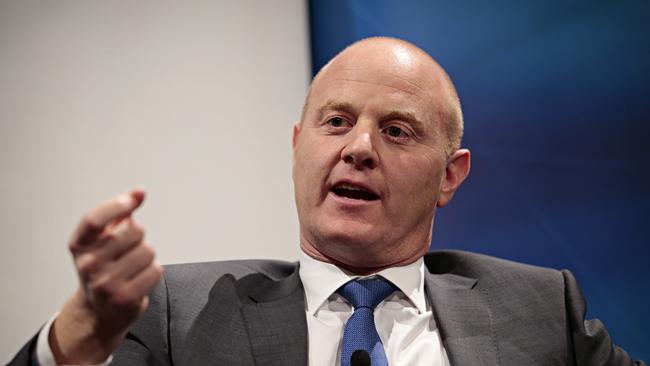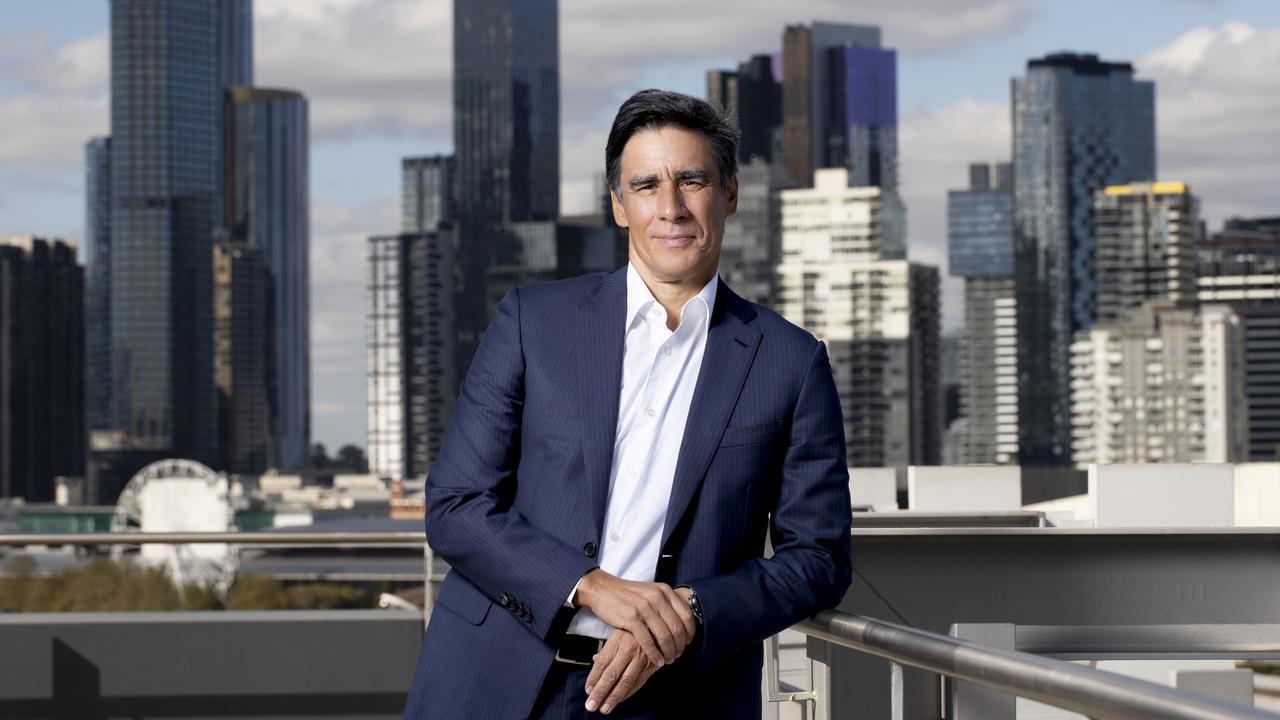CBA faces investor revolt over executive pay
Commonwealth Bank has come under fresh fire for executive pay after experts urged shareholders to stage a revolt.

Commonwealth Bank has come under fire for executive pay after experts urged shareholders to stage a revolt in the wake of fresh financial advice failings and a greater slice of bonuses linked to non-financial measures that were “essentially HR policies”.
Ahead of CBA’s annual general meeting on November 9, proxy adviser Institutional Shareholder Services recommended investors vote against the bank’s remuneration report and performance rights to chief Ian Narev, whose pay packet bulged to $12.3 million.
It came as influential adviser Ownership Matters yesterday revised its recommendation to “against” after CBA was this week caught up in the Australian Securities & Investments Commission’s damning findings into wealth companies’ charging advice fees for services not provided.
CBA was hit with the biggest compensation bill of $105.7m, plus interest, to financial planning clients, adding to $65m already paid for a separate scandal involving inappropriate advice and fraud.
Ownership Matters, which counts major super funds as clients, claimed that shareholders should vote against the pay report to ensure “management accountability for systemic failures”, arguing the new issues were probably known internally before determining pay packets and lofty customer satisfaction readings may have been inflated.
“The fact CBA would have had a reasonable notion while full-year 2016 (and potentially earlier) pay outcomes were being determined of the scope of the systemic problems with charging clients fees where no service had been delivered, and that bonuses for key executives were paid at 95 per cent of target or higher, makes it difficult to support the remuneration report,” the governance group told fund managers.
ISS was equally scathing of CBA’s move to pay a larger slice of bonuses on performance against non-financial measures, labelling them “essentially HR policies” that were part of executives’ and Mr Narev’s day job.
The reports add to growing pressure on CBA’s board after the Australian Shareholders’ Association aired similar concerns about the bank’s recent overhaul of practices. Facing the risk of an embarrassing “strike” against the board, CBA is said to be contacting major fund managers to address any concerns.
CBA chairman David Turner yesterday stood by the new practices, claiming that setting targets for diversity and inclusion, sustainability and culture was the “right thing to do and makes good business sense”.
CBA’s high-profile misconduct scandals, including life insurance arm CommInsure, were also cited by ISS, which argued a “questionable stretch” was involved in assessing whether executives achieved top-notch customer satisfaction standards required to receive short and long-term incentives.
For long-term incentives, ISS claimed using customer satisfaction involved “no tangible alignment” with shareholder returns and failed to take into account the failings in lending practices, financial advice and life insurance.
“The CEO of the bank has publicly apologised,” the report said.
“However, several years of scandals and regulatory investigation and enforcement procedures do not appear to have had any impact on remuneration outcomes,” the report said.
For short-term incentives, ISS took issue with “at risk” payments, claiming they did not have “any discernible alignment with financial results”, citing last year’s earnings growth, negative total shareholder returns, lower return on equity and weaker earnings per share.
ISS recommended shareholders vote against giving up to 55,443 reward rights — worth about $4m yesterday — to Mr Narev under the bank’s leadership reward plan.
Rather than align Mr Narev with shareholders, ISS claimed bonuses would be paid “less for financial results and more for essentially non-financial and unquantifiable performance measures, which are essentially HR policies”.
Mr Narev last year received $12.3m, up more than 50 per cent, including $6.6m of deferred equity awards that were unlikely to be repeated this year. His executive team took home $32.5m in a year where cash profit rose 3 per cent to $9.45bn, but went backwards in the second half.
CBA’s board revised the leadership reward plan to incorporate staff and the community, weighted at 25 per cent, while TSR and customer satisfaction performance components now make up 50 per cent and 25 per cent, respectively.
Previously, long-term incentives were measured across four years of performance, based on a relative TSR hurdle, weighted at 75 per cent, while customer satisfaction was 25 per cent.
While CBA has long ranked at the top of Roy Morgan’s satisfaction survey, most recently at 82 per cent, rival banks are increasingly preferring to use the “net promoter score” methodology — which measures customer advocacy — when determining pay.







To join the conversation, please log in. Don't have an account? Register
Join the conversation, you are commenting as Logout